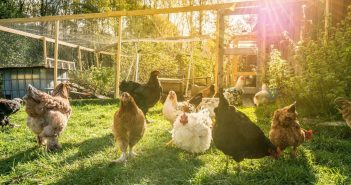So you’ve found a chinchilla for sale that you want to buy but want to make sure that you can care for your chinchilla as good as possible? Good, that’s just the right attitude. Here are 7 important tips for chinchilla care that every owner needs to know…
1 · Chinchillas Are Skittish
Though chinchillas can grow accustomed to human interaction especially if they were handled properly as kits, they are naturally averse to being touched and handled. Just keep this in mind for the first couple of months that you begin your chinchilla care. It’s especially important to let your children know this as many will have a tendency to want to play with the chin too much at first. If you have very small children it is recommended that you don’t buy a chinchilla until your child is old enough to understand proper chinchilla care.
2 · Chinchillas Befriend Slowly
Partially because of their general skittishness, chinchillas take time getting to know each other. If you introduce two chins in the same cage, they might start fighting with each other. A slow introduction process is important, as some chins may never get along no matter what. If you introduce your chinchillas at a young age however they are much more likely to interact well. Be careful about placing members of the opposite sex together as they may get along too well and you might have a few extra unexpected mouths to feed.
3 · Chinchillas Mimic Roosters
Chinchillas can be quite vocal at times. The noises they make range from squeaks and chirps to coughs and barks. Since they are active in the wild mostly at dawn and dusk, this is usually when they make the most vocalizations. This could mean that you won’t be able to sleep in as well on Saturdays since your chinchilla may start chattering away just before sunrise.
4 · Chinchillas Need Space
The natural habitat of chinchillas are mountainous regions, so confining your chinchilla to a cage that is too small will seriously distress it. Chinchillas need room to climb and explore. They also need a diverse environment with different items of interest to keep them stimulated.
5 · Chinchillas Need Fresh Dry Air
Also because of their natural habitat, it’s important to keep your chinchilla in a room that has plenty of ventilation. It also should not be too humid as this could lead to fungal infections. Chinchilla fur is susceptible not only to fungus, but also can cause the chinchilla to overheat if stagnant air reaches temperatures that are above 80 degrees Fahrenheit. The best idea is to keep them in an air conditioned room, as this will circulate dry air and regulate the temperature.
6 · Chinchillas Are Finicky Eaters
Pellets, hay, and raisins for treats. If you stray too far from this simple dietary plan you will probably be doing more harm than good for your chin. Gastrointestinal problems are common if you don’t exercise good chinchilla care when selecting a proper diet. Overfeeding can also be a problem as bloat and diarrhea can have serious implications for the health of your chinchilla.
7 · Chinchillas Need Love
 But that’s why you got one in the first place, to give and receive love. As long as you follow the rest of the tips this last one should be easy to practice. Good chinchilla care means having loving compassion towards this small fuzzy being. If you have that then everything else will fall into place. And if you’re reading this then you’re off to a great start already. So keep it up because after you find and buy that special chinchilla for sale you both will be so happy together.
But that’s why you got one in the first place, to give and receive love. As long as you follow the rest of the tips this last one should be easy to practice. Good chinchilla care means having loving compassion towards this small fuzzy being. If you have that then everything else will fall into place. And if you’re reading this then you’re off to a great start already. So keep it up because after you find and buy that special chinchilla for sale you both will be so happy together.
Looking for chinchillas for sale?
Check out ChinchillaFortune.com to find a chinchilla for sale through chinchilla breeders (and much more)!




2 Comments
Hi! I was surfing and found your blog post… nice! I love your blog. 🙂 Cheers! Sandra. R.
Hi there,
This tips really benefited me. I am also a chinchilla enthusiast but still finding some sort of information about chinchilla care. Thank you very much for sharing this great information.
I hope we can be good friends.
Sincerely,
– Sherryl